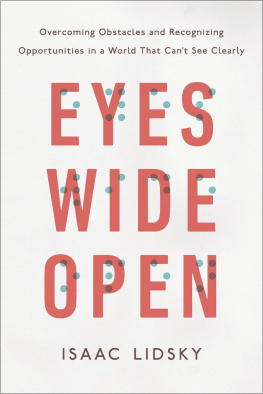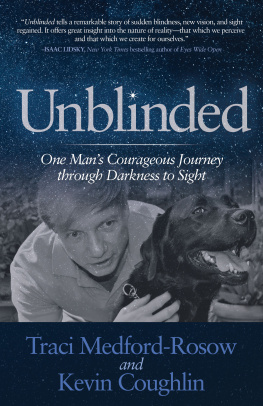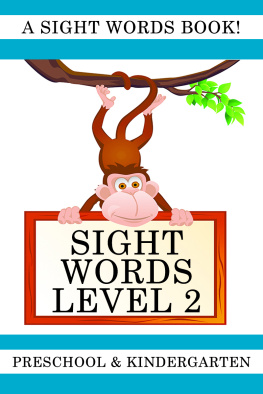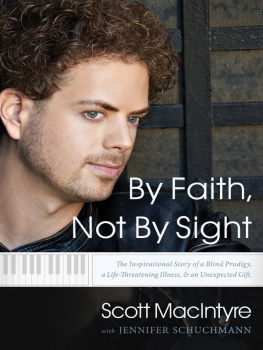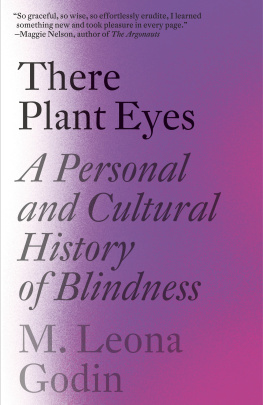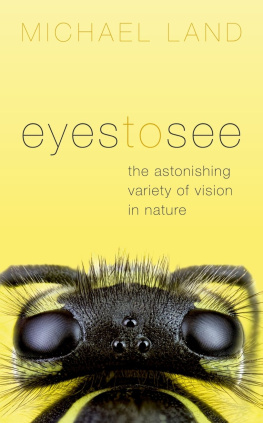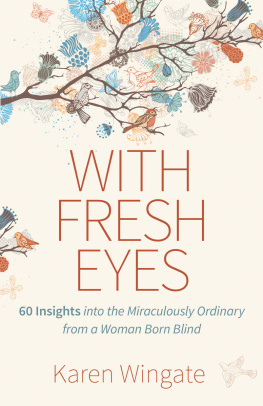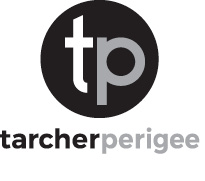Penguin supports copyright. Copyright fuels creativity, encourages diverse voices, promotes free speech, and creates a vibrant culture. Thank you for buying an authorized edition of this book and for complying with copyright laws by not reproducing, scanning, or distributing any part of it in any form without permission. You are supporting writers and allowing Penguin to continue to publish books for every reader.
Tarcher and Perigee are registered trademarks, and the colophon is a trademark of Penguin Random House LLC.
For The Kidskys, with hope you will see great blessings in your lives, and for Dorothy, the greatest in mine.
[W]orse than being blind is having sight but no vision.
CHAPTER 1
Seeing and Believing
W hat you dont know cant hurt you, but what you think you know certainly can.
When my wife, Dorothy, was a little girl, she was fascinated by her pet goldfish. Her father explained that fish swim by quickly wagging their tails to propel themselves through water. Without hesitation or doubt, Dorothy responded by informing him that fish swim backward by wagging their heads! In her mind, in her world, it was a fact as true as any other. Fish swim backward by wagging their heads.
Our lives are full of fish swimming backward. We make faulty leaps of logic. We make myriad assumptions. We prejudge. We harbor biases. We assume. We experience our beliefs and opinions as incontrovertible truths. We know that we are right and others are wrong. Fish swim by in reverse, frantically wagging their heads, and we do not notice them.
We are hardwired to do this. It is in our nature. As babies, we develop an understanding of our environment through countless observations of cause and effect. A baby drops her spoon on the ground. She is chastised by her mother, who bends to pick it up, washes it off in the sink, and then returns it to the breakfast tray. This scene plays out repeatedly for months or years, much to the mothers irritation. Along the way, the child learns about gravity, she begins to understand the concept that the floor is dirty, and she refines her understanding of how her actions can capture her mothers attention and impact her mothers emotions.
This is how we learn to survive, to interact with our world. We are creatures designed to find order in chaos, definition in ambiguity, certainty in a world of probabilities. We build up a vast database of experiences and design for ourselves rules and logic consistent with those experiences. We generalize, simplify, predict.
Our predisposition to reason from experience is a useful tendency, to put it mildly. It explains how our ancestors knew to run from a ferocious animal they had never before encountered, and how your child learns to say his first words. It also explains how a good salesman instinctually refines his pitch over time, learning to read responses and overcome common objections.
This tendency is also the source of great harm. How often do you miscommunicate with someone because you are making faulty assumptions about his motives or meaning? On what basis have you decided that your goals, hopes, or dreams are unattainable? Do you fear the worst, borrowing trouble? Do you strive for unattainable perfection and find disappointment in the inevitable result? How often do you stop to consider the profound difference between what you know and what you think you know?
Precocious little Dorothys fish are amusing and innocent. Those that swim through our adult lives rarely are. In our careers and personal lives, in our relationships, and in our hearts and souls, our backward-swimming fish do us great harm. They exact a toll in missed opportunities and unrealized potential. They paralyze us with fear. They engender insecurity and distrust where we seek fulfillment and connection. They breed bias and prejudice.
In this book I will teach you to see the fish swimming backward through your life. I didnt notice mine until I slowly lost my sight to a progressive eye disease. But as I went blind I began to see them clearly. The deterioration of my sight cast them into focus. As I learned to recognize them, I embraced my blindness and gained a life richer in understanding, connection, and success. I call it living eyes wide open.
At work and at home, living eyes wide open has brought me immeasurable joy, fulfillment, and success. It is the philosophy that led me to leave behind my childhood acting career to attend college after starring as Weasel on NBCs sitcom Saved by the Bell: The New Class. I graduated from Harvard with an honors degree in mathematics and computer science at age nineteen, then founded an Internet advertising technology company. Living eyes wide open led me to leave that company when it was finally thriving, this time to attend Harvard Law School. After Harvard Law I spent three years litigating appeals in the federal courts as a U.S. Justice Department attorney before achieving my dream of serving as a U.S. Supreme Court Law Clerk, working for Justices Sandra Day OConnor and Ruth Bader Ginsburg. Then, in 2011 I saw eyes wide open the enormous potential in a struggling Orlando construction company. I put aside my legal career, figured out how to acquire the company, doubled down when the early days seemed to spell financial disaster, and turned it around, growing it tenfold in five years.
Living eyes wide open is also how I accepted my blinding disease, then embraced it. With eyes wide open I cherish my extraordinary wife, Dorothy, and our marriage. I celebrate our six-year-old triplets, our ninety-eight-day fight for their health, and their miraculous triumph against all odds. I celebrate their little sister, too. I see my life bursting with blessings, and I strive for the grace to honor these blessings.
People often ask how I have had so many diverse experiences at such a young age or accomplished so much so quickly. Invariably, they will then say something like: And you did it all despite going blind. I cant imagine. Yet for me, going blind has not been a limitation on my life. In fact, it has helped me to achieve and to thrive. Ive derived great lessons and blessings by going blind. Ive gained vision by losing my sight.
Going blind is the blessing that showed me how to live my life eyes wide open. But anyone can choose to see what I see, even the sighted! Thats why I wrote this book. I wrote it to teach you how and to inspire you to do so. In the chapters that follow, Ill share practical ways to open yourself to new learning, unexplored opportunities, and your true potential. Ill help you to confront both your fears and your perceived limitations. Ill show you how to embrace your work and your life, not resign to them. And Ill challenge you to be a leader in your own life and in the lives of those around you.
But before you can live eyes wide open, you need to better understand what happens when you open your eyes. Paradoxically, when it comes to fish that swim backward, your sight obscures your vision. The way you experience sight makes it harder to spot these fish.

